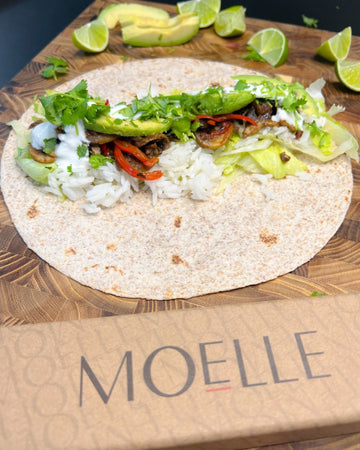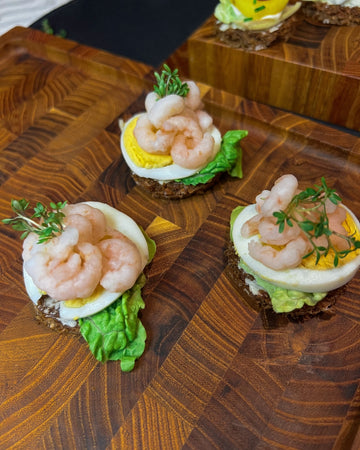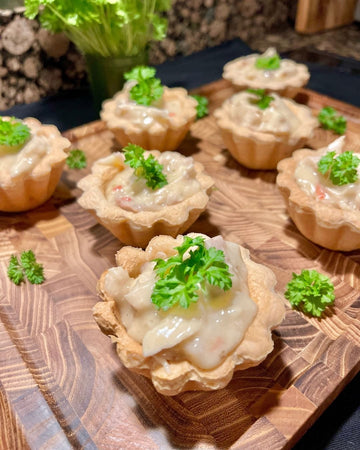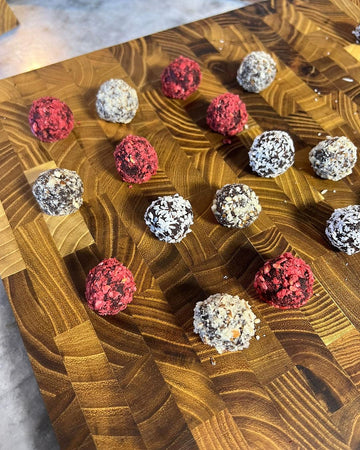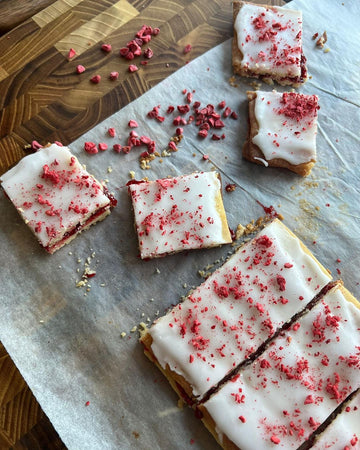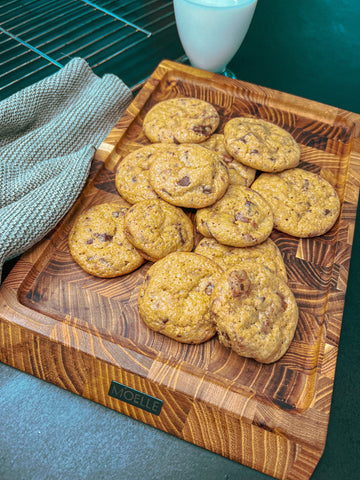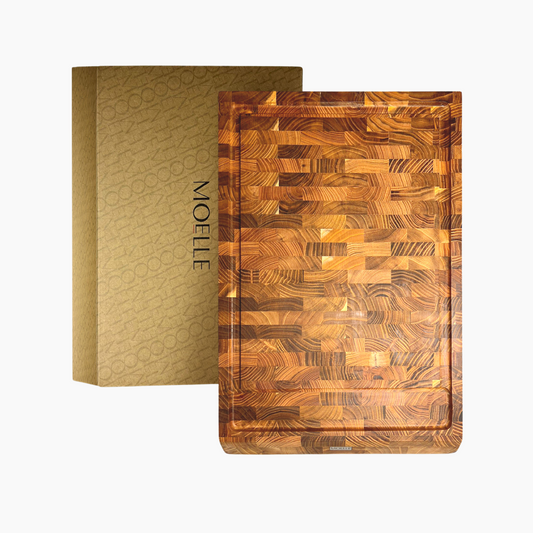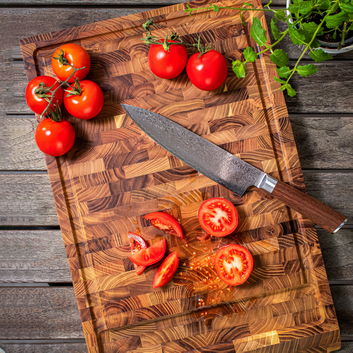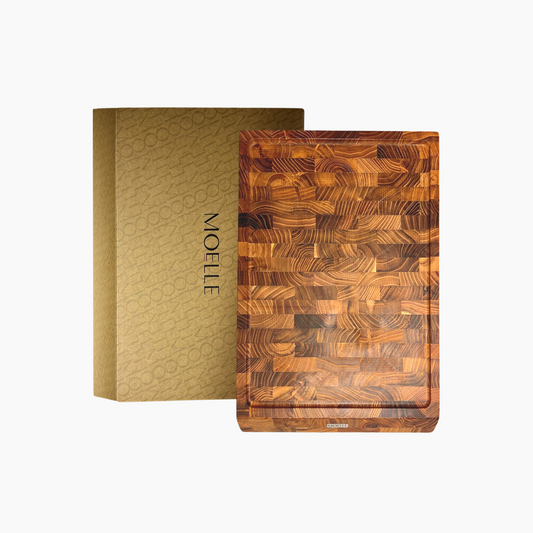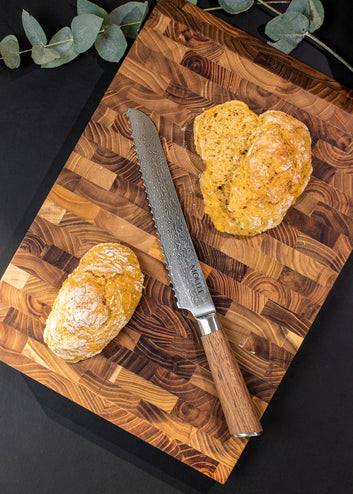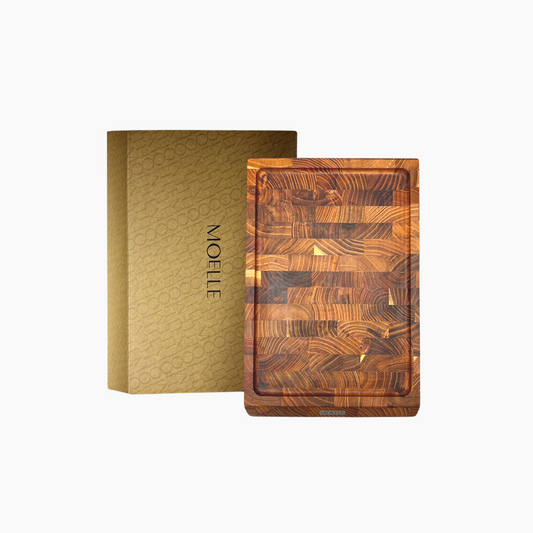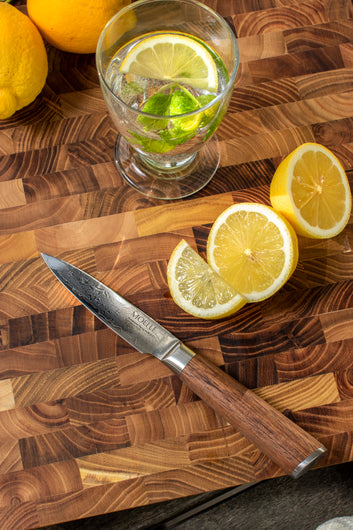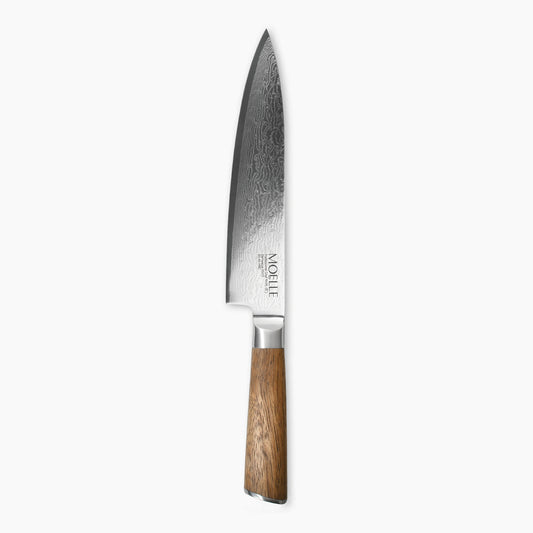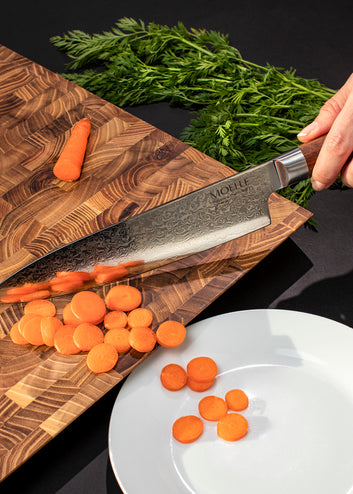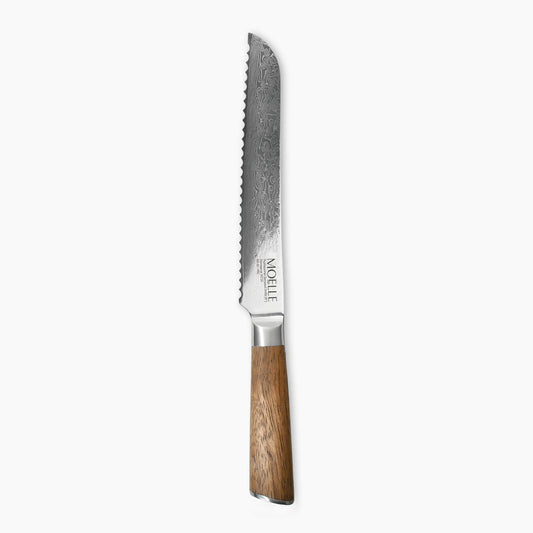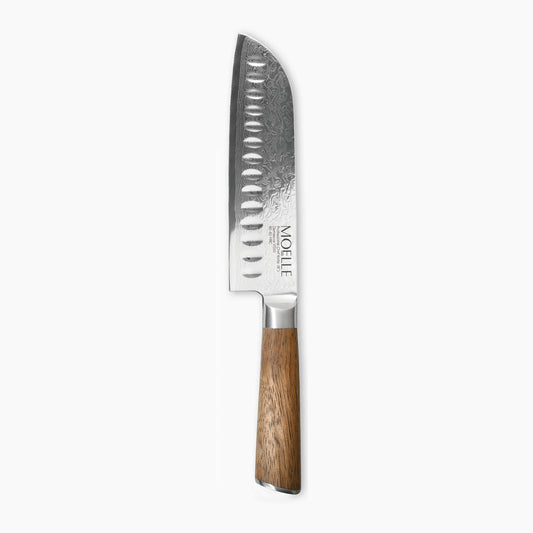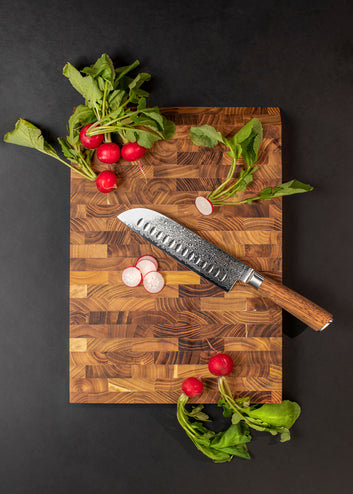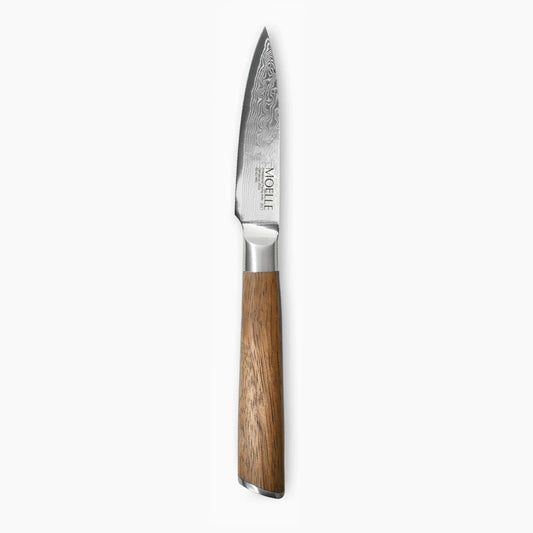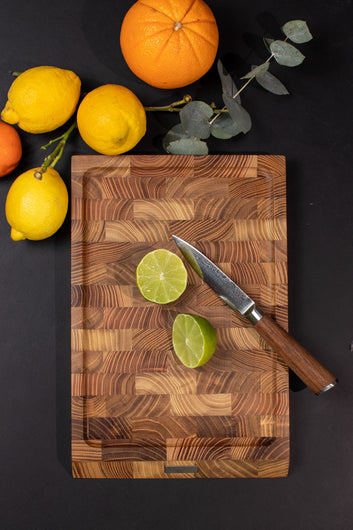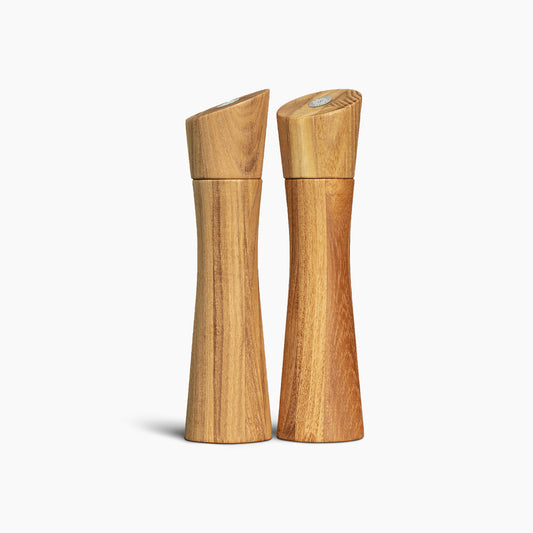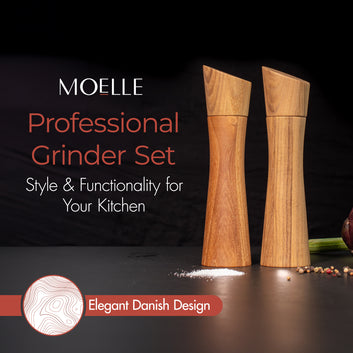Complete Guide to Damascus Knives
Damascus knives have earned their reputation as some of the most exquisitely designed and meticulously crafted blades available. For those seeking a knife with enduring quality, a Damascus knife presents itself as an ideal choice.
Within the context of this Damascus knife guide, we're delving into a comprehensive exploration of all things Damascus knives. We'll take you on a historical journey through the origins of Damascus steel, provide insights into its manufacturing process, and equip you with valuable information to consider when you're in the market for purchasing one of these exceptional knives.

How is Damascus steel made?
-
Wootz Steel
In antiquity, the marvel known as Damascus steel, or Wootz Steel, emerges. Yet, its intricate methods vanished over history, leaving enigmatic echoes. Originating in India, Wootz steel journeyed to the Arab world and finally Damascus, where master artisans transformed it into iconic blades.
-
Modern Damascus Steel
Fast-forward to today, and the renaissance of Damascus steel thrives. Modern knife makers wield innovation, layering stainless and diverse steels, often including carbon. By methodically folding and melding these metals, a single piece forms, etching the blade with its captivating wavy motif.
What precisely do Damascus steel knives entail?
Damascus steel knives, as the name suggests, are crafted from Damascus steel. What sets them apart is their distinctive wavy pattern that graces the blade. Renowned for their robustness and resilience, these knives are prized possessions.
Although they might come with a higher price tag, Damascus steel knives are an investment that pays off. If you seek a knife that becomes a lifetime companion, the Damascus knife stands as an ideal choice.
Distinguishing Damascus Steel Knives from Others
-
Visual Appeal
The most notable contrast between contemporary Damascus steel knives and their counterparts lies in their appearance. The captivating wavy pattern that adorns Damascus steel knives sets them apart, a feature absent in other steel blades. This distinctiveness fuels their popularity, catching the eye of enthusiasts and newcomers alike.
A single glance is all it takes to differentiate a modern Damascus steel knife even for those not deeply acquainted with blades. If you're in search of a knife that demands attention, a Damascus steel knife stands as an exceptional choice.
-
Composition of Steel
Unlike knives fashioned from a single steel piece, Damascus steel blades often amalgamate multiple steel types. Among these, stainless steel frequently takes the spotlight due to its rust-resistant properties. Many skilled knife makers also incorporate high carbon steel, enhancing the robustness and endurance of modern Damascus steel knives.
-
Pricing Distinction
It's no secret that Damascus steel knives usually command a higher price compared to their steel counterparts. This is a reflection of the superior quality steel used and the intricate crafting process that demands substantial time and dedication.
Varieties within Damascus Knives
When exploring the realm of Damascus steel knives, you encounter a diverse selection to choose from. Let's delve into each category below.

-
Damascus Fixed Blade Knives
Undoubtedly, the fixed blade knife claims the spotlight as the most popular type of Damascus knife. This distinction is owed to its remarkable durability and extended lifespan. Its robust nature makes it an ideal companion for outdoor pursuits like camping, hiking, and hunting. Yet, its utility extends beyond adventure to encompass everyday tasks such as slicing vegetables or opening boxes.
-
Damascus Folding Knives
An equally favored option is the folding knife. Characterized by its retractable blade, this type of knife neatly folds into the handle, allowing for effortless portability and compact storage. While folding knives may generally be perceived as less durable compared to their fixed blade counterparts, meticulous craftsmanship can render them just as sturdy and reliable.
-
Damascus Pocket Knives
Among the selection, Damascus pocket knives stand as the smallest variety, designed for convenient pocket-carry. These compact tools excel at everyday activities like opening letters, cutting cords, or shaping wood. Their versatility extends to outdoor settings, making them a trusted companion for camping and hiking endeavors.
What to Look for in a Damascus Knife?

-
Durability
When seeking the perfect Damascus steel knife, prioritize high-quality materials. The blade's strength and sturdiness are paramount for enduring heavy usage.
Handle Quality EquallyIts important is the handle's robustness and construction. Ensuring it remains secure and unyielding during usage is crucial.
-
Sharpness
A top-notch Damascus steel knife should boast razor-sharpness for effortless cutting. Furthermore, its edge retention should eliminate the need for frequent sharpening.
-
User-Friendly Design
Comfort matters. Opt for a Damascus steel knife with an ergonomic design – a comfortable blade grip and handle that's easy to hold. Additionally, lightweight construction ensures hassle-free portability.
-
Handle Aesthetics
A preferred choice is a wooden handle, adding aesthetic appeal while remaining budget-friendly. This choice is both pleasing to the eye and the wallet, enhancing the overall experience.
Identifying Counterfeit Damascus Knives
When examining a Damascus knife to determine its authenticity, several key indicators can help unveil the legitimacy of the blade:

-
Visual Patterns
The absence of a distinctive wavy pattern on the blade serves as the most glaring red flag. If the blade lacks the intricate design, appearing uniformly smooth, it is improbable that the knife is constructed from genuine Damascus steel.
-
Material Quality
The caliber of materials employed in crafting the knife is a critical factor. Authentic Damascus knives are meticulously forged using premium materials, contributing to their remarkable durability. A blade made from subpar or inexpensive materials is likely not an authentic piece.
-
Price Comparison
The price of the knife provides a valuable clue regarding its authenticity. Authentic Damascus knives generally command a higher price due to the intricate craftsmanship and superior materials involved. If the knife's price seems unusually low in comparison, it raises suspicions about its authenticity.
Maintaining Your Damascus Steel Knife: Essential Tips
To uphold the sharpness and longevity of your prized Damascus steel knife, adhering to these fundamental maintenance practices is crucial

-
Cleaning Regimen
The care and cleaning of Damascus knives are straightforward. Utilize a damp cloth to gently wipe down the blade, effectively removing dirt and debris. However, exercise caution by refraining from using harsh chemicals or abrasive materials, as these could compromise the intricate patterns etched onto the blade's surface.
-
Prudent Storage
Safeguard your Damascus knife from potential damage by adopting prudent storage practices. When the knife is not in use, consider housing it in a secure location. You can either opt for a sealed container or wrap the knife in a soft cloth to prevent inadvertent contact and safeguard the blade's integrity. For non-stainless blades, it's advisable to apply a thin coat of oil for protection.
-
Regular Sharpening
To maintain the razor-sharp edge of your Damascus knife, adhere to a regular sharpening routine. Employ either a manual or electric sharpener, ensuring a gentle approach to prevent compromising the intricate patterns etched onto the steel. By doing so, you ensure the knife's cutting prowess remains impeccable.
FAQs on Damascus Steel Knives
Why the Name "Damascus"?
The name "Damascus" for this steel knife derives from multiple origins. While many associate it with the Syrian city of Damascus, known historically for its blades, the term might also trace its roots to the Arabic word "damas." Regardless, Damascus steel blades are renowned for their exceptional craftsmanship and durability.
Are Damascus Knives More Prone to Rusting?
No, contemporary Damascus steel blades are not inherently more susceptible to rust compared to other knife types. Many modern Damascus kitchen knives incorporate stainless steel components within their alloy, enhancing their resistance to rust and corrosion.
Is Acquiring a Damascus Knife Justifiable?
Absolutely, investing in a modern Damascus steel kitchen knife is highly worthwhile. These knives are meticulously crafted using top-tier materials, ensuring exceptional durability. They offer an exceedingly sharp cutting edge capable of effortlessly slicing through various materials. Additionally, they exhibit commendable edge retention even with repeated use.
Conclusion
Having explored this comprehensive guide, you should now possess a deeper understanding of the potential advantages offered by Damascus steel. The insights provided here aim to elucidate the realm of these knives, empowering you to make informed choices that align with your preferences and needs.
As you venture forward, we trust that our efforts have helped unravel the enigma surrounding Damascus knives. Should you find yourself in search of a new blade, we encourage you to consider embracing this exceptional craftsmanship.
For those seeking the pinnacle of Damascus steel knives, we extend a warm invitation to explore our store. Feel free to reach out to us today with any inquiries you may have. We stand ready to provide you with further insights and assist you in your quest for these remarkable knives.




